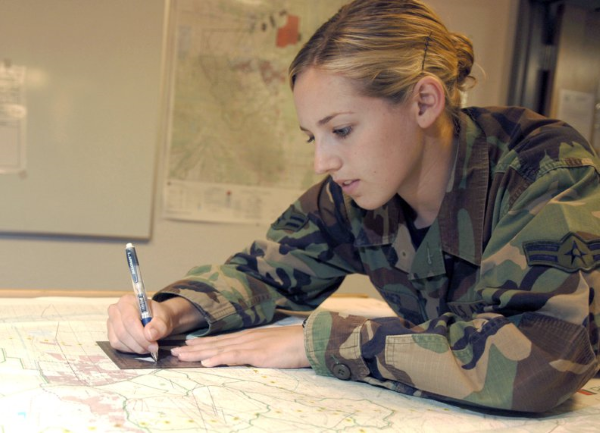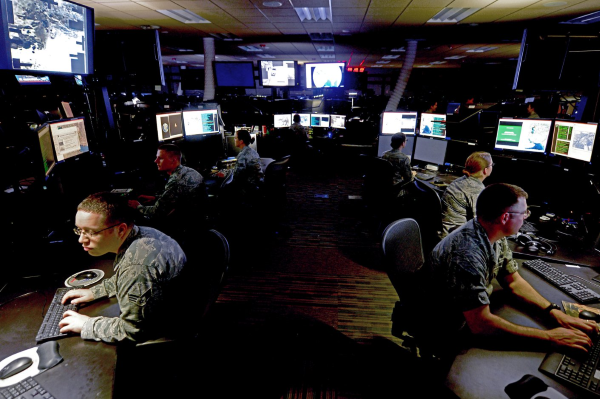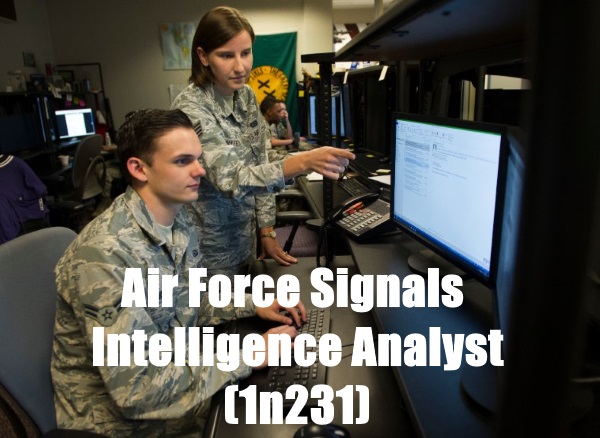With information being one of the most vital contributors to a successful mission, an Air Force Signals Intelligence Analyst is tasked with gathering and using the information to plan and conduct activities.
Often working closely with other military branches to resolve threats, Intelligence Analysts are helpful in completing missions. They can analyze and use the information that they gather to help spot their rivals’ weaknesses. They can also determine their abilities and plan around them for a better mission success rate.
By sharing their information with other military branches, their commanders and their personnel, Air Force Signals Intelligence Analyst’s have a very important job and are a vital asset to the military.
Signals Intelligence Analyst Requirements and Qualifications

In order to become an Air Force Signals Intelligence Analyst, you must first meet the basic requirements.
Requirements
- You have to be between the ages of 17 and 39 years old.
- You must be a member of the United States Air Force.
- High school diploma, GED with 15 college credits, or GED
Once you have met those basic requirements, you are then needed to meet the necessary qualifications for the job.
Qualifications
-
- You have to complete the Electronic Signals Intelligence course
- No record or history of temporomandibular joint pain or disorder
- Completion of a Single Scope Background Investigation performed
Training And Career Path
To hold the position of Air Force Signals Intelligence Analyst, you must attend the technical school at Goodfellow AFB in Texas for a little less than 3 months.
Related Article – How To Join The US Air Force
While you are taking the training course program, you’ll be learning different things such as:
- How to lead and perform diverse intelligence activities.
- You’ll oversee the analysis and the joining of different pieces of intelligence.
- You will develop plans and policies for intelligence-based schemes.
- How to generate and compose an accurate intelligence analysis.
- How to combine intelligence and combat methods.
- You’ll also learn more about intelligence policies.
How Much Are They Paid?
Air Force Signals Intelligence Analyst pay depends on how long one has been in service and the current rank they hold.
The following table displays rank and pay grade depending on the years one has served.
| Insignia | Pay Grade | Rank | Abbreviation | 2023 Minimum Monthly Pay |
|---|---|---|---|---|
| E-1 +4 months | Airman Basic | AB | $1,917.60 | |
| E-2 | Airman | Amn | $2,149.20 | |
| E-3 | Airman First Class | A1C | $2,259.90 | |
| E-4 | Senior Airman | SrA | $2,503.50 | |
| E-5 | Staff Sergeant | SSgt | $2,730.30 | |
| E-6 | Technical Sergeant | TSgt | $2,980.50 | |
| E-7 | Master Sergeant | MSgt | $3,445.80 | |
| E-8 | Senior Master Sergeant | SMSgt | $4,957.20 | |
| E-9 | Chief Master Sergeant | CMSgt | $6,055.50 | |
| E-9 | Command Chief Master Sergeant | CCM | $6,055.50 | |
| E-9 | Chief Master Sergeant Of The Air Force | CMSAF | $6,055.50 |
It’s important to note that this table reflects base pay only and service members receive many other benefits and compensation such as complete medical coverage, and housing allowance if living off base to list a few monetary benefits.
What’s Life Like As A Signals Intelligence Analyst?

There are amazing opportunities to gain unmatched leadership experience and special skills.
You have a lot of chances to travel and work outside of your field.
Related Article – Air Force Geospatial Intelligence (1N131): Career Profile
There are even opportunities for education and careers with veteran status. Another advantage is that you have weekends off.
This job is great for those who want to feel that their job is important and respectable.
By being in charge of the safety of several other soldiers and being in a leadership position you can really feel valued.
Having weekends and holidays off from work and being able to travel around the world are also really nice perks of this job.
Civilian Career Opportunities
After your career in the United State Air Force is over, there is still plenty of job opportunities outside of the military to join thanks to your special training and skillset.
Here are a few helpful suggestions of jobs based upon your skill set and experience as an Air Force Signals Intelligence Analyst:
- The police force
- Other military branches as a contracted civilian employee
- Private corporations
- Customs agencies
- Other intelligence agencies
With so many job openings for this specific type of specialty on the rise, you’ll have no problem finding employment. There are many opportunities that you can use to take advantage of upon completion of your time in the military.
Reference
Average Intelligence Analyst Salary
- Ikon Pass Military Discount: Learn How To Save Big - January 31, 2025
- RTIC Military Discount: Find Out How To Save Big on Gear - January 30, 2025
- Traeger Military Discount: Learn How To Save Big on Smokers - January 28, 2025

